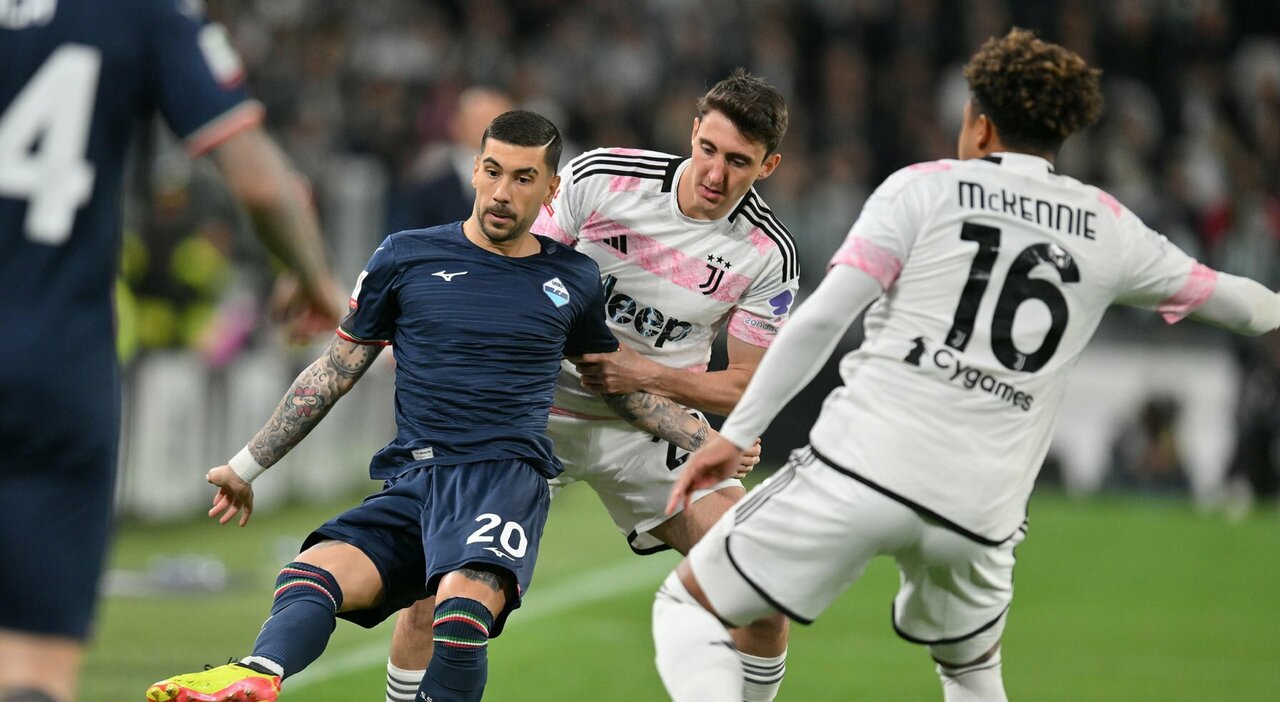Juventus-Lazio started with a thrill for the Biancocelesti who saw the referee Massa award a penalty to the Turin team. At the 11th minute, Cambiaso made a good run on the flank and then crossed to the far post where Vlahovic found the ball. Patric then headed the ball to Vecino who, however, hit the Juventus player squarely. The referee did not think twice, but was then stopped by the Var for a possible offside by the former Genoa player. After going to the On field Review, Massa decided to cancel everything due to Cambiaso's offside position.
What happened and what the rules say
It took three minutes to determine that the winger's position was not regular. The referee decided to cancel his previous decision because at the moment of Vlahovic's header, which tried to serve his teammates in the area, Cambiaso was offside. The crux is all on the header by Patric who tried to head the ball away. The ball was not "played deliberately", however, due to the speed with which it arrived towards the central defender. The fact that it was not on the ground and that the trajectory was unexpected since it came from a first touch also played an important role. This led Massa to consider the play as involuntary and therefore he cancelled everything.
What the rules say
To better understand, it is possible to cite the Serie A league regulations, which clarify this situation exactly. Offside, defined by rule 11, occurs only if a player beyond the line of defenders interferes with the game or touches a ball passed by a teammate, or interferes with an opponent:
"preventing him from playing or being able to play the ball, clearly obstructing his line of vision, or • contesting the ball, or • clearly attempting to play the ball which is close when this action impacts on the opponent, or • making an obvious action that clearly impacts the opponent's ability to play the ball, or • gaining an advantage (from such position) by interfering with an opponent or playing the ball when: • it has rebounded or has been deflected by the goalpost or crossbar, by a match official or by an opponent • a "save" has been deliberately made by an opponent.
A player in an offside position receiving the ball from an opponent who has played it deliberately, including with hand/arm, is not considered to have gained an advantage, unless it is a deliberate save by an opponent. A "deliberate play" (excluding deliberate hand/ball contact) occurs when a player has control of the ball with the possibility of: • passing the ball to a teammate • gaining possession of the ball, or • launching the ball (e.g., kicking it or heading it).
If the pass, the attempt to gain possession, or the launch of the ball by the player in control of the ball is inaccurate or unsuccessful, this does not negate the fact that the player has deliberately played the ball. The following criteria must be used, as appropriate, as indicators that a player had control of the ball and, consequently, can be considered to have "deliberately played" it:
• The ball was coming from a distance and the player had a clear view of it, • The ball was not moving fast, • The direction of the ball was not unexpected, • The player had time to coordinate the movement of his body, that is, it was not a case of stretching/extending (limbs) or an instinctive jump, or a movement that resulted in limited contact/control, • A ball moving on the ground is easier to play than a ball in the air.
This article is automatically translated
